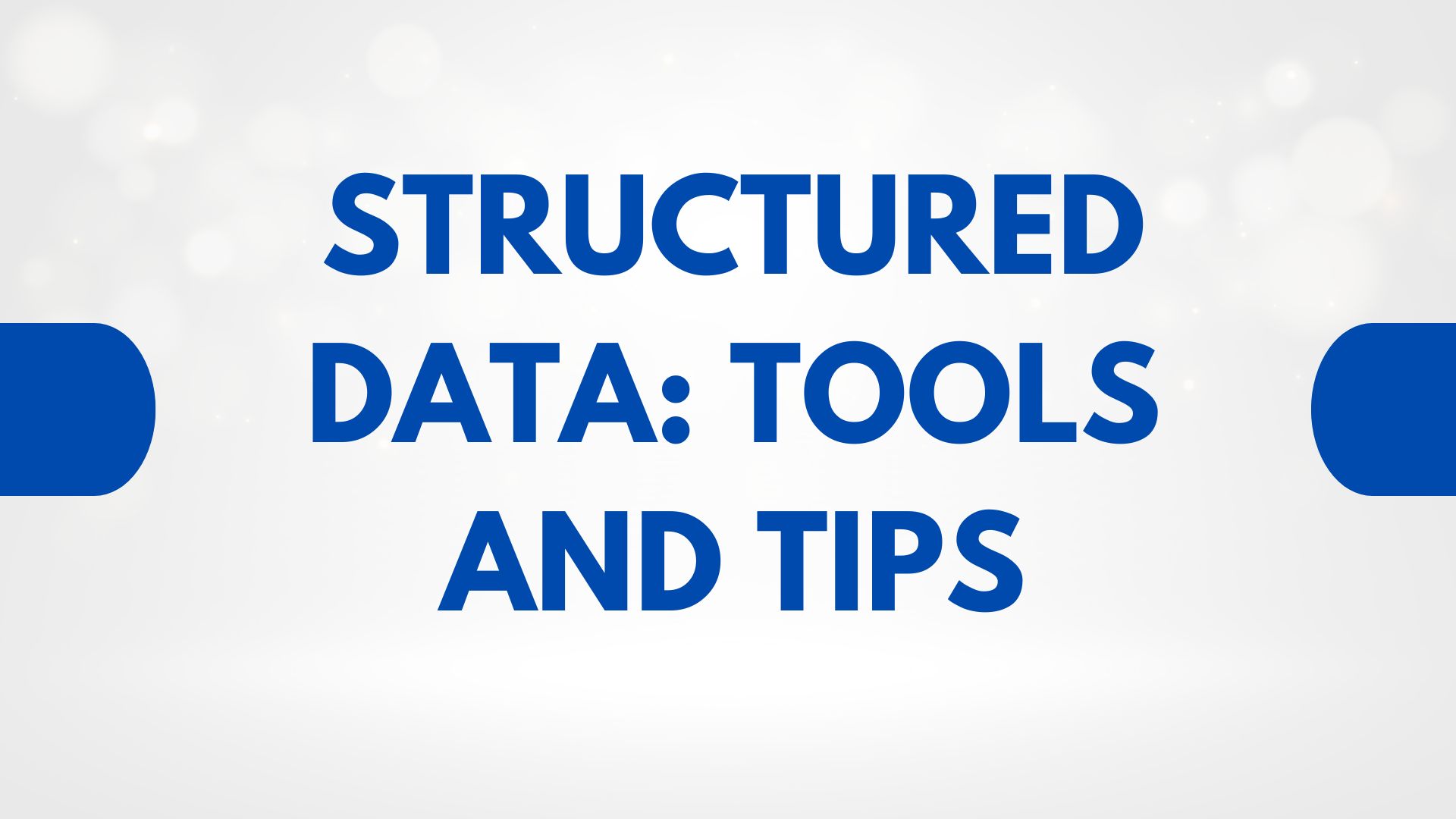Structured data is the unsung hero of modern SEO. While everyone obsesses over backlinks and keyword rankings, this behind-the-scenes powerhouse quietly elevates search visibility. Those eye-catching rich snippets—star ratings, recipe cards, event countdowns—don’t magically appear. They’re the result of meticulous structured data SEO.
But here’s the brutal truth: sloppy markup won’t just be ignored. It can backfire. Imagine Google displaying incorrect event dates or botched product prices. Testing isn’t optional—it’s survival.
Why Structured Data Validation Isn’t Just Pedantic Perfectionism
Picture this: A bakery spends weeks perfecting a croissant recipe, only to have Google’s rich snippet display “Cook Time: 0 minutes” because of a missing prepTime field. Tragic.
The High Stakes of Unchecked Markup
- Lost SERP Real Estate: Competing against pages with rich snippets? You’re bringing a text-only knife to a visual content gunfight.
- Algorithmic Distrust: Repeated markup errors may train Google to deprioritize your pages.
- Mobile-First Fallout: 58% of searches happen on mobile, where rich results dominate screen space.
The Testing Trifecta
- Accuracy: Does the markup reflect reality? (No, your 1-star reviews shouldn’t show as 5-star.)
- Compliance: Are you playing by schema.org and Google’s ever-changing rules?
- Rendering: Will this actually look right in SERPs?
The Arsenal: Structured Data Testing Tools That Don’t Waste Your Time
Forget manual code inspection. These tools are the equivalent of having an SEO sherpa guide you up Mount Ranking.
1. Google’s Rich Results Test – The Gold Standard

Why It’s Indispensable
- Previews Your SERP Destiny: See exactly how your recipe/product/event could appear.
- Error Pinpointing: “Missing
aggregateRating” beats vague “markup invalid” messages.
The Catch
- Blind spots for non-rich-result schema (FAQPage, HowTo).
Pro Move: Test both URLs and code snippets—Google sometimes treats them differently.
2. Schema Markup Validator – The Understudy
When Google retired its OG testing tool, this Schema.org-backed alternative became the people’s champion.
Strengths
- Validates all schema types, not just rich result candidates.
- Cleaner error reporting than some third-party tools.
Limitations
- No visual previews. It’s like proofreading a movie script without seeing the film.
3. Screaming Frog SEO Spider – The Site-Wide Auditor
For enterprises with 500+ product pages, manual testing is a nightmare. Enter Screaming Frog.
Killer Features
- Crawls entire sites flagging markup inconsistencies.
- Integrates with Google Analytics for ROI analysis.
Budget Warning: The free version caps at 500 URLs.
4. Merkle’s Schema Generator – Training Wheels Mode
Perfect for WordPress bloggers who break into hives at the sight of JSON-LD.
The Good
- Drag-and-drop simplicity for common schemas.
- Outputs clean, W3C-valid code.
The Bad
- Limited flexibility. Trying to markup a niche B2B service? Good luck.
The Minefield: Most Common Structured Data Blunders
Even seasoned developers faceplant here. These aren’t hypotheticals—they’re errors that nuke rankings daily.
The Syntax Snafus
- JSON-LD Landmines: A single missing
,or}can invalidate entire blocks.
Fix: Paste code into JSONLint before deployment. - Microdata Mayhem: Improperly nested
itemscopeattributes confuse crawlers.
The Content Mismatches
- Invisible Markup: Hiding review text behind JavaScript tabs? Google often ignores it.
- Stale Data: Forgetting to update
availabilityfrom “InStock” to “SoldOut” creates CX disasters.
The Overzealous Markup
- Stuffing Unrelated Schema: Adding
LocalBusinessto a personal blog? That’s like wearing a tuxedo to Walmart. - Duplicate Markup: Accidentally implementing both JSON-LD and Microdata for the same element.
Beyond Tools: Real-World Validation Tactics
Tools give theoretical validation. These strategies prove your markup survives Google’s algorithmic thunderdome.
Google Search Console’s Enhancement Reports
The “Rich Results Status” dashboard is like a search engine polygraph test:
- Errors: Immediate red flags (e.g., “Missing
priceCurrencyfor Product”). - Valid Warnings: Items that technically pass but may limit visibility.
The Manual SERP Check
- Search
site:yourdomain.com "keyword" - Append
&gl=us&hl=ento force English/US results - Hunt for missing rich snippets competitors have
The Mobile Test
Google’s mobile-first indexing means:
- Test markup using Mobile-Friendly Test
- Verify AMP pages have identical schema to desktop
The Future-Proofing Playbook
With Google’s 2024 emphasis on AI Overviews, structured data feeds the beast.
Emerging Trends
- AI Training Data: Well-marked up content gets ingested more accurately by Gemini.
- Voice Search Optimization: Schema helps Alexa/Google Assistant parse answers.
The Zero-Click Threat
As featured snippets eat more traffic, structured data is your best defense:
FAQPagemarkup increases position-zero odds by 31% (Ahrefs 2023)
The Unspoken Truth About Structured Data
Testing isn’t about appeasing Google—it’s about user experience. That recipe schema? It helps someone with dietary restrictions quickly see if your dish contains nuts. The event markup? Ensures timezone conversions are accurate for global attendees.
The next time you’re knee-deep in validators, remember: you’re not just debugging code. You’re building digital signposts that guide real humans through the chaos of the internet.
Now go run that structured data testing tool—your future rich snippets are waiting. 🚀


